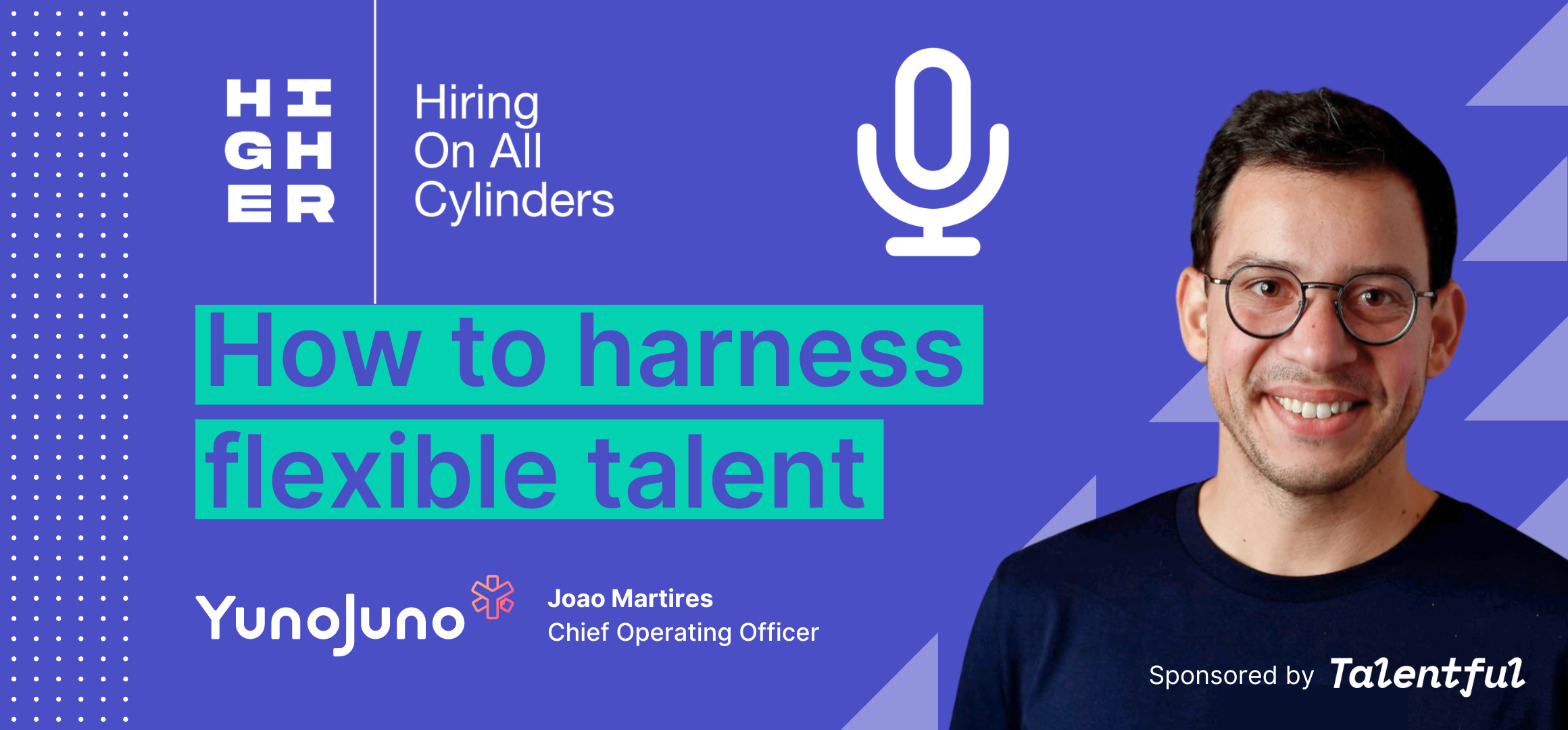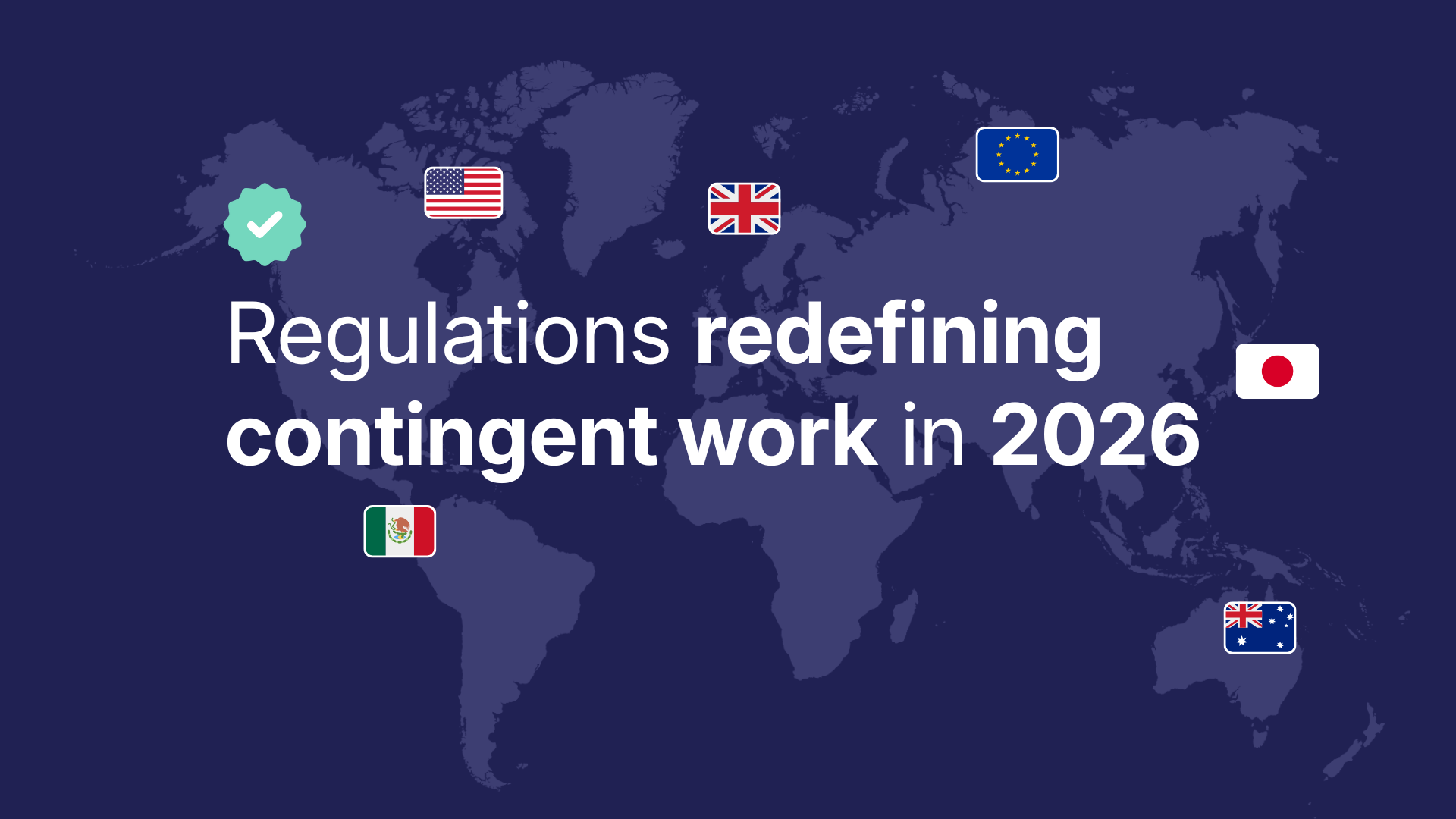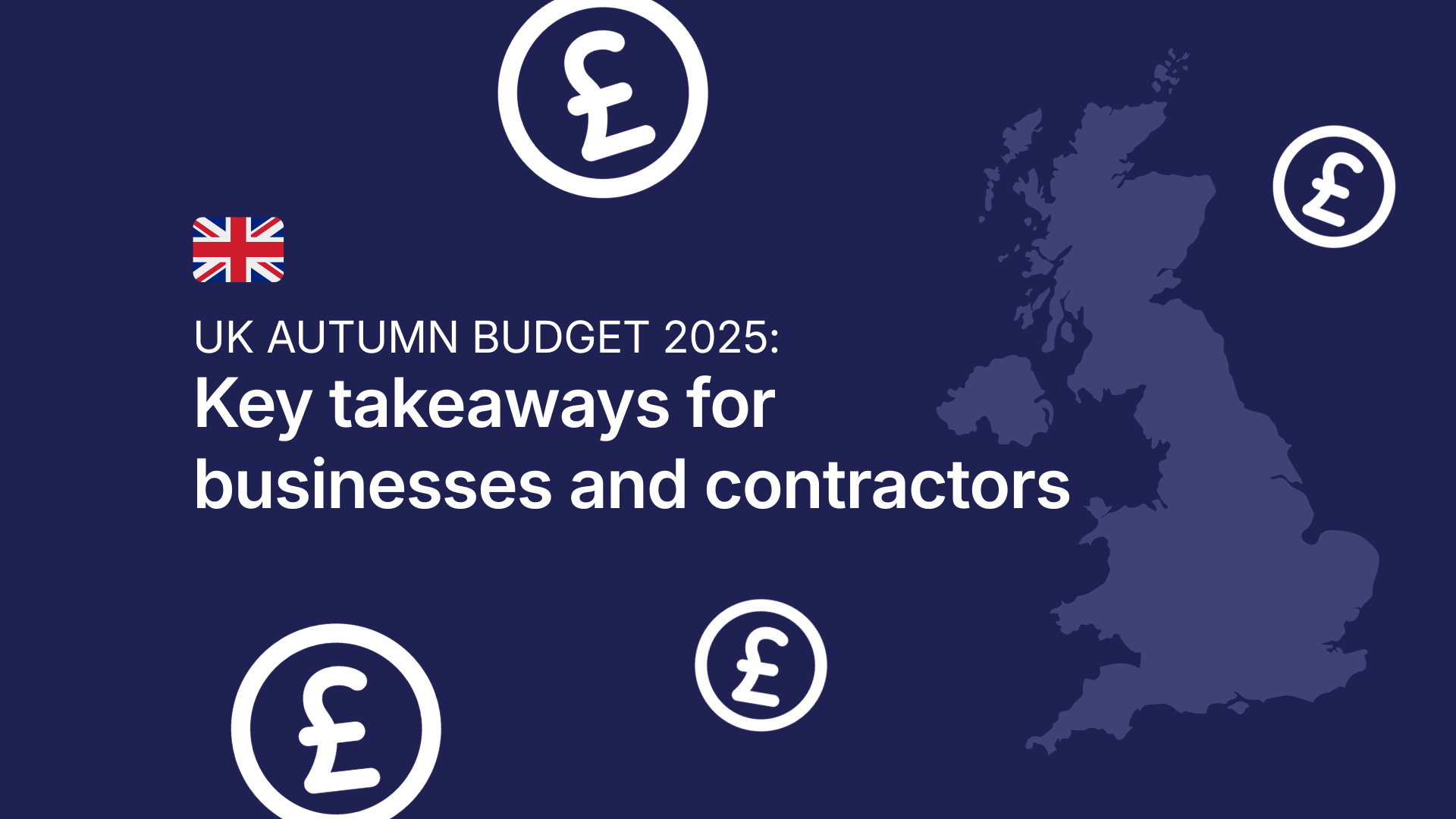Earlier this month, YunoJuno COO Joao Martires was invited on HIGHER Community’s, ‘Hiring on All Cylinders’ podcast with Talentful Founder and CEO, Chris Abbass to dig deep into the flexible talent trends taking over our newsfeeds and explore what this means for talent leaders.
In this episode, the two industry thought-leaders sat down and covered hot topics like:
1. Why talent leaders are considering the use of flexible talent in their strategy
2. The legal, compliance, and tax considerations leaders need to be aware of
3. The flexible talent trends arising and where the market is heading
Plus, how YunoJuno can help take the pressure off finding, hiring, managing and paying talent all over the globe.
Watch the full pod now
'Hiring on All Cylinders' Podcast also available on Spotify and Apple Podcasts.
HIGHER Community X YunoJuno Q&A highlights
Chris: We're talking today about something that is front of mind for a lot of leaders, which is flexible talent, strategy and solutions. And obviously, YunoJuno is at the forefront of that with your Contractor Management System.
Contractors have always been really important to us in our talent strategy. But I think there's been a move over the last 4-5 five years, where people are reconsidering the makeup of their team. What do you think has led to people considering contractors more?
Joao: It’s a very relevant question and there are market dynamics that have accelerated these considerations. One of them is the usage of more distributed workforces, then, there's a massive acceleration on the technology landscape as well. So for companies to become, and to continue to be innovative, they need to tap into skills that they don't have today.

Chris: A lot of the old narrative around building your talent strategy was having the ‘80/20’ split, which would be 80% full-time employees and then 20% flexible contractors, freelancers, etc. Are you seeing that flexible percentage increasing over the last few years?
Joao: When we speak with talent and HR leaders and the other leaders in the organisation, there's definitely a consideration there, because there's a big movement related to skills based organisations, moving the focus away from jobs to mapping organisations based on skills. So we do see that 80/20 rule in the market at least being challenged with larger corporates. However, with midsize or disruptive companies, that 80/20 split is simply no longer there.
Chris: Now, if you're a leader, and you're thinking about how to build your team, and you're interested in contractors, and building a flexible workforce, what are the key considerations leaders should be thinking about?
Joao: It starts with understanding the organisational needs, what are the business goals and the skills that you require to achieve them. Then it's important to understand what's the nature of work, considering what are the skills required for the long-term against the skills needed today, for more tactical, strategic or project-based initiatives.

Chris: So when using a platform like YunoJuno, how fast can an organisation expect to scale up a team or get contracts on board? Could you talk about that process?
Joao: Sure. The key thing about YunoJuno is that we leverage product and technology to accelerate the whole onboarding process. So, typically to onboard a contractor, including vetting the independent structure, verifying all the documents and getting them up and running - it takes less than two days. Outside of YunoJuno, this process can take one to two weeks depending on who is doing it.
One of the core features our clients like is that they can build their own internal talent pool. So instead of managing multiple contractors in multiple places, it brings a centralised view on who they’ve worked with, their skills, access to analytics, insights and overall costs.
It's like building your own internal marketplace, and once they have been vetted, they can just go and book them.
Chris: You mentioned some of the considerations, and this is where I think some people get concerned around the complexities of contracts, legal and compliance that maybe they don't understand. Can you talk about how a leader could effectively handle those things?
Joao: Yeah. So there's two ways to look at that. If you do it yourself, then it's probably going to be more complex, because you will need to take into consideration multiple local regulations, from tax to employment.
I would say if you have a partner to do that, it becomes easier, particularly if technology is being used. We understand that compliance can be a little bit scary, and it can be complex. So by building flows into the product that creates a seamless experience, and a guided experience, it makes it very, very easy.
Chris: And so regarding the tax, the compliance, the payroll, all of that stuff, YunoJuno can handle all of that?
Joao: Yes. It's an end to end solution in that perspective.
Chris: That's good to know. Because I think a lot of companies find the prospect of contracts overwhelming for that reason. So having that kind of taken care of, I think is a good thing for a lot of leaders.
Joao: Something that is highly valuable is standing behind your technology and your service. At YunoJuno we provide an indemnification, that what they get is actually what we stand behind. There's a lot of companies that offer the service, but then don't provide that extra level of peace of mind if something goes wrong, like in the cases of misclassification.

Chris: So it's clear that there's a trend happening right now. If you were to get your crystal ball and predict what's going to happen in the future and where the market is going in regards to their flexible talent, what do you think the future holds?
Joao: I think for the future, the use of flexible talent will increase. I'm speaking to a lot of leaders at the moment and most of considerations are forward-looking. And it's all around skills-based organisations. What leaders are seeing is that businesses need to actually have two main drivers, one is the core/permanent, and the other is flexible talent/contractors.
With technology, and particularly with Gen AI, it accelerated a big change that I would say is unclear what's going to be the impact. But what we are seeing is that the requirement of specific skills will very likely increase, and working ways will change.
I believe in the future, that percentage, even now at around 30-40% contingent workers, is going to accelerate even further.







